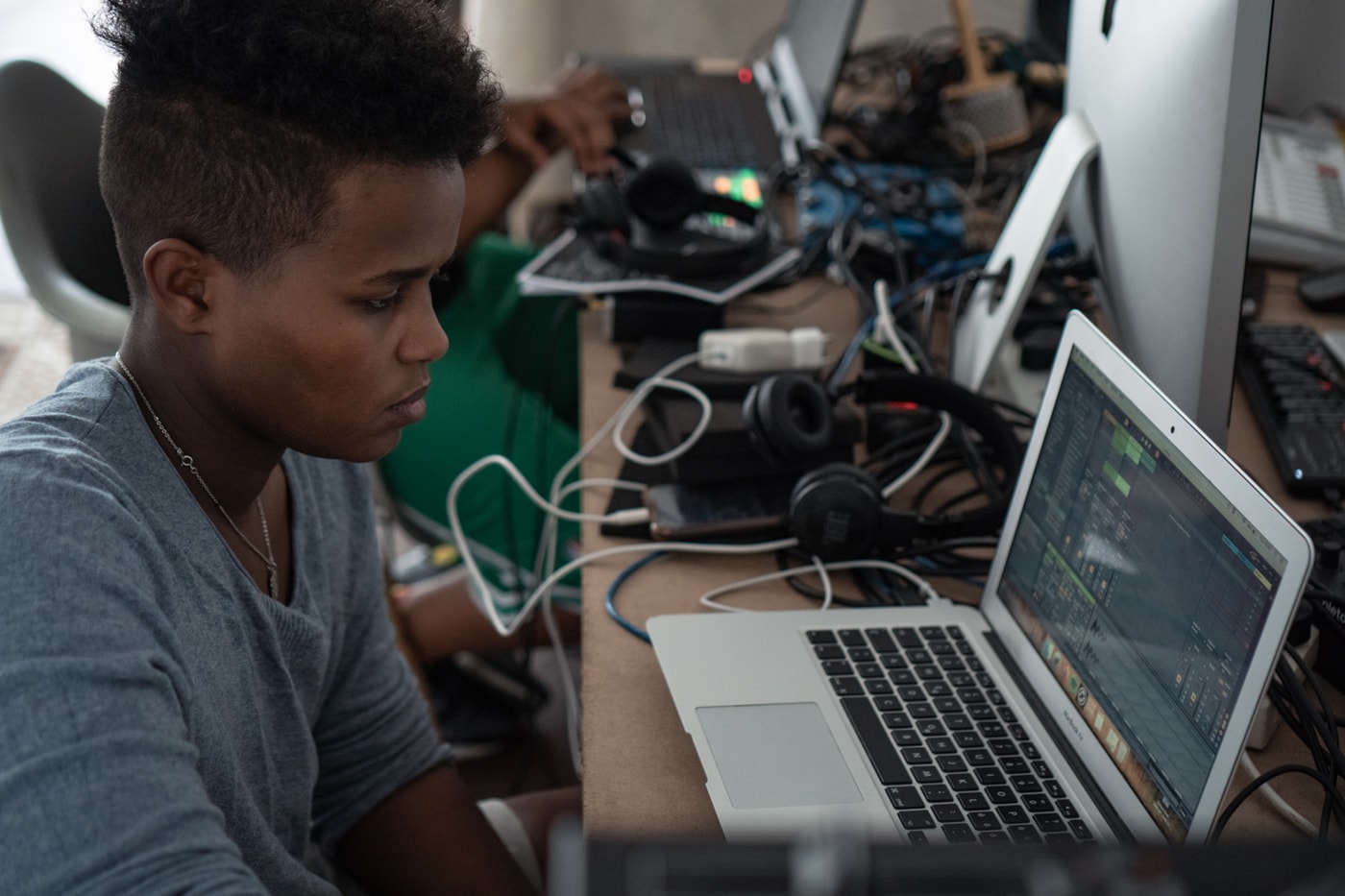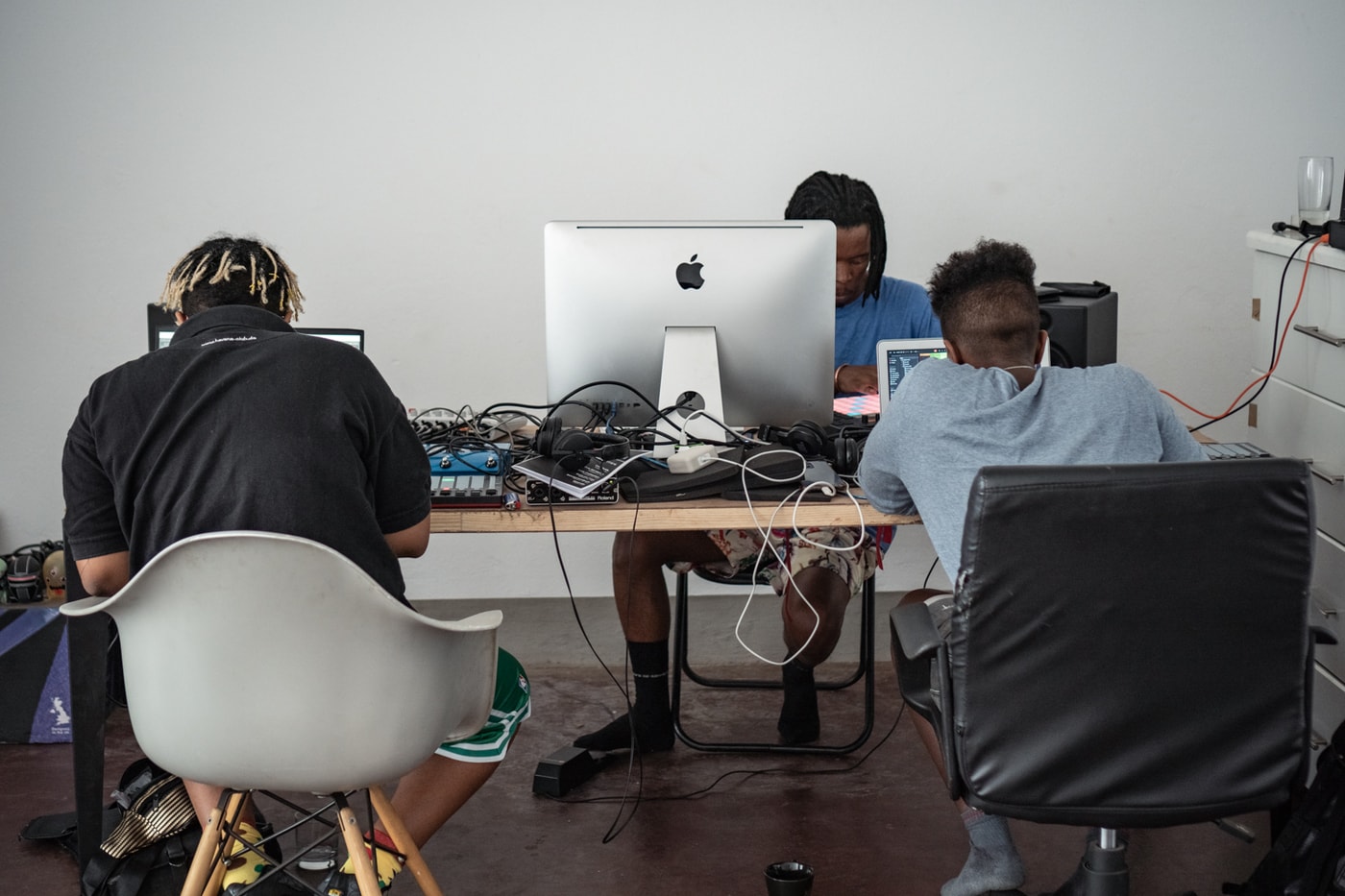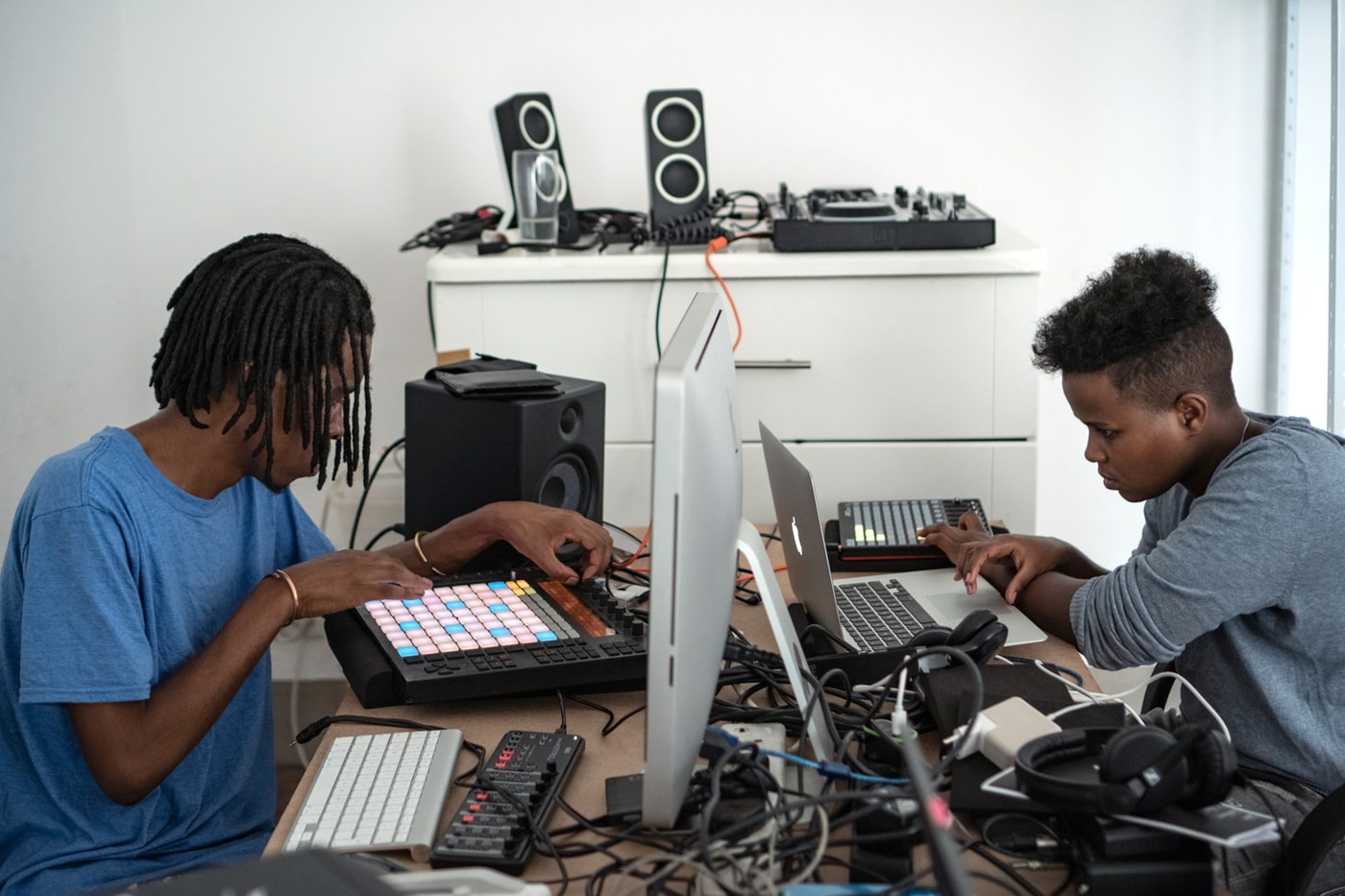DJ Mighty and Bone Black speak to their experiences in music, identity, and collaboration with Shap Shap Joburg’s What’s Up program.
Swiss-based deejays Mighty and Bone Black were in Joburg recently for a series of collaborative workshops and a once-off club performance with South African artists such as Desire Marea, who has recently launched his solo venture (he is part of the free-groovin’ electronic and experimental duo, Faka); and the producer and (former?) Dirty Paraffin member, Dokta SpiZee, who is also a piece of the puzzle in the CUSS Group art collective.
Their trip was the first leg of a two-part exchange program, the second leg of which is being held in Switzerland. Both instances form part of the Swiss cultural organization Shap Shap’s Joburg, What’s Up program.
“What is particularly important about the residency is how it encourages cross-disciplinary pollination and has opened up discussion around what it necessary to facilitate easier access to gigs and spaces for African artists. It has also provided a space to draw out how these kinds of conversations need to be translated into pragmatic steps for action,” noted Bubblegum Club, writing about last year’s events.
The interview with the Swiss-based deejays took place at the tail-end of the Joburg leg. We linked up at a restaurant-slash-independent cinema located in the cultural precinct of Maboneng, on the eastern edge of the Joburg CBD. Mighty, French-born and gender non-conforming, informed me that their flight would be in a few hours, while Bone Black, a transgender male born and raised in Djibouti, lamented the trip back, and wished that their stay would be extended. A large portion of our discussion centred around their musical roots, South African experience, and how they go about creating safe spaces back home in Switzerland.

Recalling last year’s experience, where Manthe Ribane, Gyre, DJ Lag and others went to Switzerland, DJ Mighty said: “We had a week in the studio. It was a really great experience, followed by a party afterwards. It’s a bit rare to have queer people of colour [partying] in Geneva. People had a great time.”
In Joburg, spaces that claim to be queer-friendly have oftentimes come under fire for not being safe confines where members of the LGBTQI community can let go without fear of reproach. Reports have popped-up on-line about how, for example, bouncers seem unequipped to deal with queer-identifying people, and how they then resort to violent measures when confronted with people who appear queer.
I asked Mighty what they think about this, and their response is that it’s not enough to just say that it’s a queer party. They continue: “You have to really be conscious of the context, the people that are gonna be involved. Explain to bouncers what kind of party it is, and [teach them] how to deal with people. But I think it’s gonna take some time to get them to be aware of those things. In Geneva, we have an awareness team at queer parties, where we have people that take rounds in the party to make sure that everyone feels safe. They have distinctive signs, and you can go to them if you have trouble. That is actually working. We also put signs around the venue where our values are clearly specified.”

To the last point, I raise the issue of a festival like Afropunk where, during their Joburg events for instance, they’ve booked acts who go against their stated values.
DJ Bone Black responds by saying that he thinks, “it’s easier to think of spaces that are steady, like clubs”.
He continues in the vein of DJ Mighty: “You do awareness workshops with the bouncers where the bar employees are also involved. You start to do a bit everywhere. How you advertise the event also, specifically giving some guidelines.”
Bone Black plays afrobeats, gqom, and ‘a bit’ of amapiano, while Mighty plays house and ballroom music.
I ask Bone Black what his experience of Joburg has been like.
“I was really dropped out of the plane. We knew that it was one week, so there was no pressure to be super-productive and have a big outcome. It was about connecting and starting the process of creation.”
There was no expected end-product, says Mighty.
“We listened to what we were doing, what Zamani (Dokta SpiZee) was doing. We jammed a bit. When he didn’t want to do a beat, I made it,” they say.
Bone Black adds: “We bought some instruments, percussion and things. The studio was at Zamani’s place.”
Aware that the flight time was drawing near, we wrapped up the conversation. The discussion shifted from music-making to what values they, as artists, extract from exchange programs such as this one by Shap Shap.
“It’s a lot of inspiration that comes from doing stuff with other people. It’s meaningful in a way, because [it says] that we are together in this. I also look forward to more,” says Mighty.
“For me, it’s an amazing process. There aren’t many people in Switzerland who do this, so coming here, there’s inspiration everywhere. I’m learning from others, and also share what I know,” concludes Bone Black.
Exchange programs in general can be tricky ground for Africans. Often times political motivations and bureaucratic agendas can conflict or profit from exchanges such as this one. That said, it’s refreshing to see collectives using their funds to build sustainable models that make interactions like this one possible. Fitting the core principles into the exchange and involving those who are the ground floor of these movements is the key to having a broader impact on society at large.

